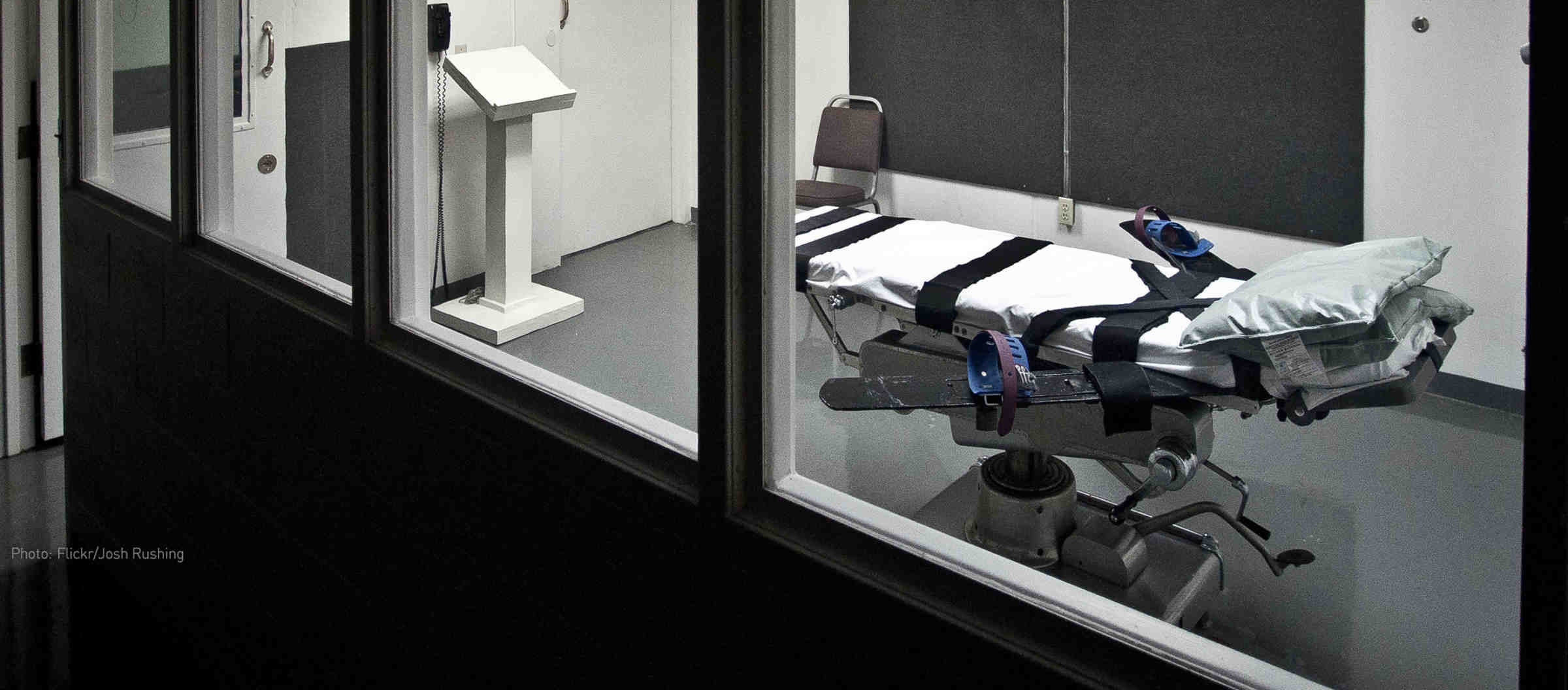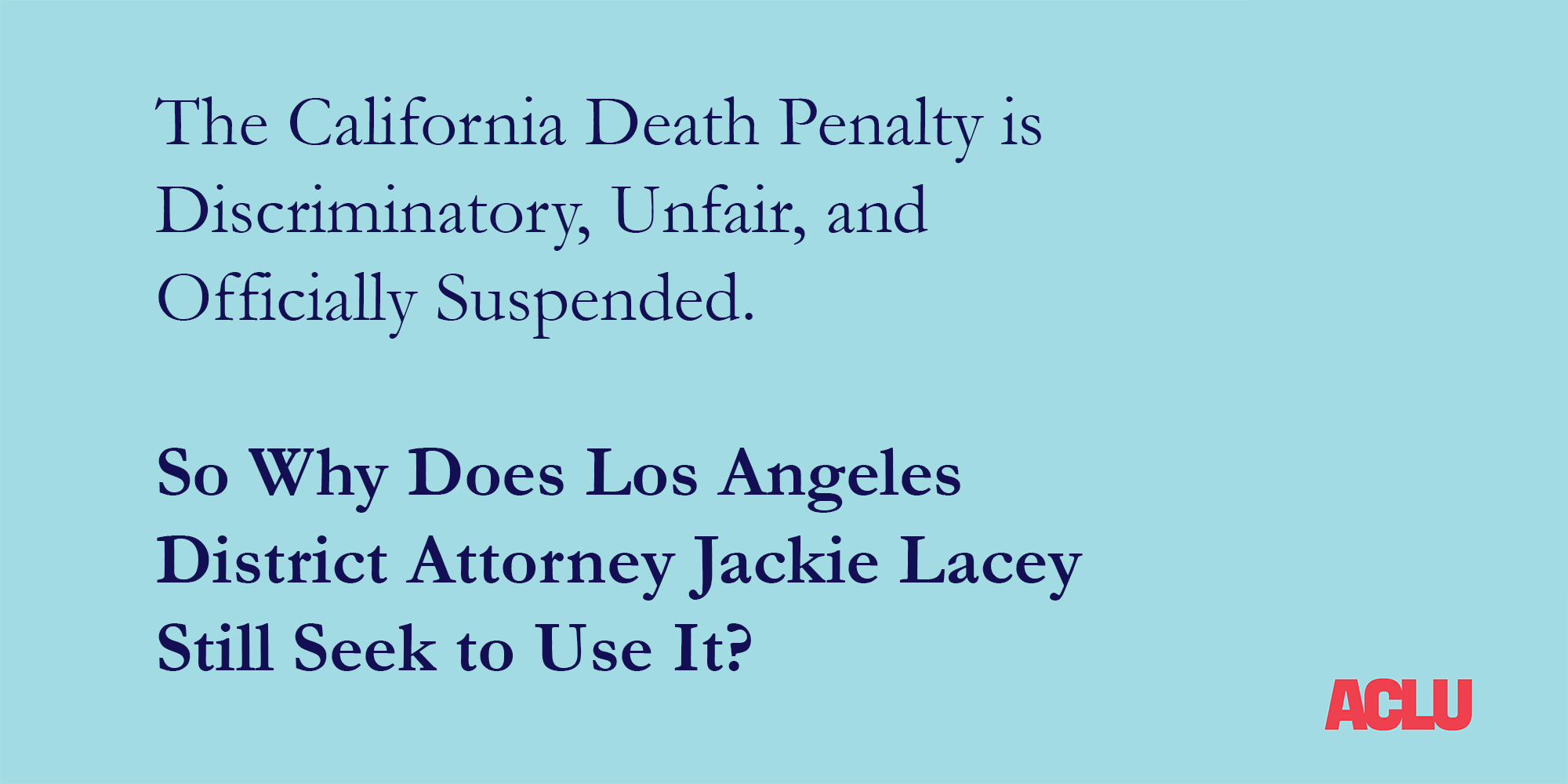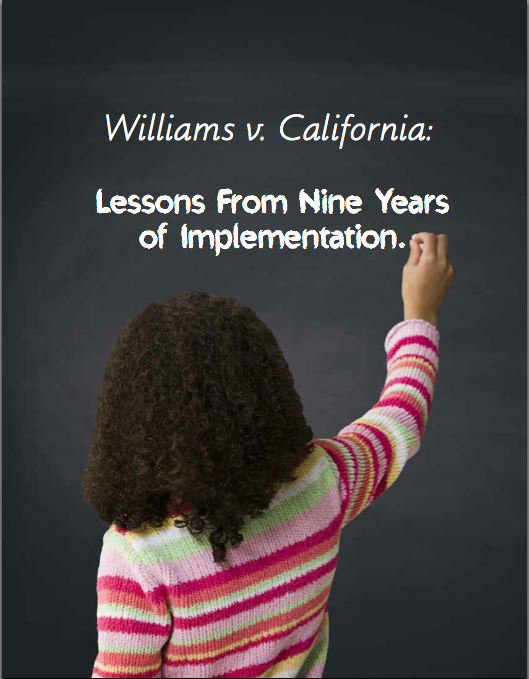The California Death Penalty is Discriminatory, Unfair, and Officially Suspended.
So Why Does Los Angeles District Attorney Jackie Lacey Still Seek to Use It?
A new ACLU report reveals troubling racial bias, unfairness, and overuse of the death penalty in Los Angeles under District Attorney Jackie Lacey's watch.
In March of 2019, California Governor Gavin Newsom issued a moratorium on the death penalty, putting a halt to all executions under his watch. Los Angeles voters have repeatedly rejected the death penalty at the ballot box, yet District Attorney Jackie Lacey has continued to seek the death penalty in capital trials.
During her almost seven-year tenure as district attorney of the county, Jackie Lacey has sent 22 people to death row. These sentences have been characterized by racial bias — every single one of the 22 people was a person of color — as well as serious concerns regarding the quality of lawyers who represented defendants who couldn’t afford private counsel. Out of the 22 cases, nine defendants had lawyers who were previously or subsequently disbarred, suspended or charged with misconduct. A tenth defendant had a lawyer who repeatedly fell asleep through his trial.
Nationwide, we know that the death penalty is racially biased, error-prone, and used to punish those with the worst lawyers, not the people who committed the worst crimes. The data shows that far from an exception, Los Angeles, the nation's leader in generating death sentences, is a major contributor to the unfair and discriminatory application of the death penalty.
It is long past time for Los Angeles to break from its pattern of using this unfair and discriminatory punishment.
Take action today to stop DA Lacey from seeking the death penalty.
Date
Tuesday, June 18, 2019 - 6:45am
Featured image
Show featured image
Hide banner image
Related issues
Criminal Justice and Drug Policy Reform
Documents
Show related content
Pinned related content
ACLU Calls on District Attorney Lacey to Eliminate Death Penalty Sentencing in Los Angeles
Meet Your District Attorney
Tweet Text
[node:title]
Share Image
Type
Menu parent dynamic listing
Show PDF in viewer on page
Style
Standard with sidebar
Date
Monday, June 17, 2019 - 1:00pm
Menu parent dynamic listing
Show PDF in viewer on page
Style
Standard with sidebar
Books to study. Clean, safe and functional classrooms. Qualified teachers.
Students in all of California's public schools deserve at least these basic necessities for educational opportunity. The plaintiffs in the historic Williams v. California lawsuit fought for this principle, and on September 29, 2004, when legislation implementing the settlement agreement was signed into law, they helped to usher in a new era for public education in California.
Today, the ACLU of Southern California celebrates the nine-year anniversary of this landmark settlement with the release of a report, Williams v. California: Lessons From Nine Years of Implementation. The report examines the long-term impact of Williams and demonstrates how the standards and accountability systems established by the Settlement Legislation have significantly improved conditions for all students, and for students attending California's lowest-performing schools in particular.
The outcomes detailed in the report are truly remarkable. Williams has put hundreds of thousands of textbooks into the hands of students who otherwise would not have had books to study from at home. Many districts have changed their hiring practices as a result of Williams to ensure teachers have the appropriate training and credentials to teach their classes and students. Schools are reporting fewer unsafe facilities conditions despite daunting fiscal challenges that have made it increasingly difficult to properly maintain classrooms and buildings. Williams is working.
Nine years of implementing the settlement legislation have shown the power of clear standards, strong accountability systems and a focus on students' needs. Notably, Williams has been responsible for preserving key educational equity standards throughout years of unprecedented state budget deficits.
Now, with California on the cusp of implementing the new Local Control Funding Formula (LCFF) and the Common Core State Standards, the Williams standards and accountability systems are as vitally important as ever. In fact, of the eight priorities the State of California recently established under the LCFF for all schools, the first is ensuring that all students receive the necessities promised by Williams.
The report includes specific recommendations for how the State can fulfill this promise, drawing from the lessons learned over the past nine years. Experience has shown that continued vigilance and willingness to adjust are necessary for progress to be sustained. Our schools need increased resources and efficient modern data and accountability systems if we are going to reach the day envisioned by the Williams student plaintiffs — a day where every child, regardless of where she lives in California, can go to school, confident that she will have all the books she needs to study; a clean, safe and functional classroom and a qualified teacher.
Read the full report.
Learn more about Williams v. State of California.
Learn about filing a Williams complaint.
Date
Monday, September 23, 2013 - 12:00am
Featured image
Show featured image
Hide banner image
Related issues
Education Equity
Documents
Show related content
Pinned related content
Williams Complaint Process
Williams v. State of California
ACLU and State of California Reach Settlement In Historic Williams Education Lawsuit
Tweet Text
Williams v. CA requires that all students have books and that their schools be clean and safe.
Share Image
Type
Menu parent dynamic listing
Show PDF in viewer on page
Style
Standard with sidebar
Pages


